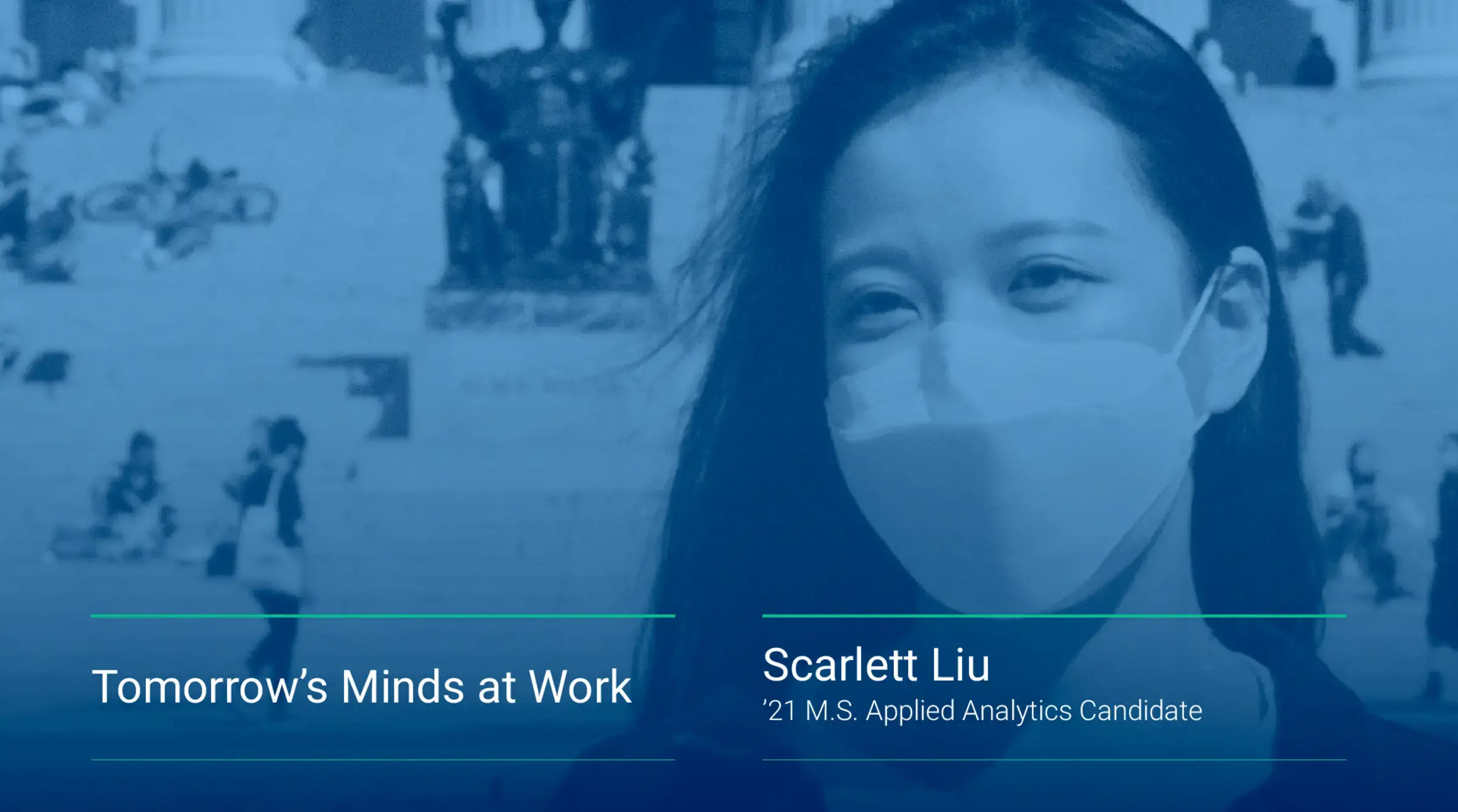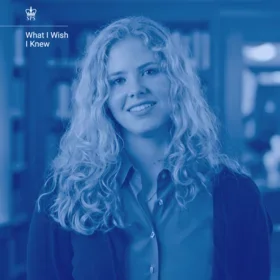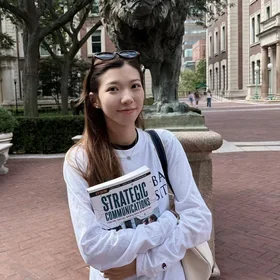Fresh from her summer internship with Apple Inc., Scarlett Liu '21SPS, Applied Analytics, discusses the benefits of Columbia’s HyFlex learning environment and how she uses techniques learned from Columbia professors to tell the story behind her data analyses.
What’s your favorite part about returning to campus with the HyFlex learning model?
I feel like a student again. I feel more engaged now that I’m back on campus with the HyFlex model. Last semester, everyone was in quarantine; now, I get those in-class interactions with professors which is more effective for learning new concepts. I recently attended an on-campus class and it was nice to have a professor quickly respond to my questions. Even seeing their subtle facial expressions; I like that part!
Coming back to New York City mentally prepared me for staying ahead of my tasks, including doing my homework, reaching out to other students and talking to professors. It’s important to create that environment for yourself as a student, so that’s why I came back to campus.
And also, Columbia has done a lot to ensure that people are safe on campus. Before I returned, I had to provide a negative COVID-19 test result and the classrooms were already set up with socially distanced seats. So that made me feel really safe to return to campus. Being here in-person gives students more time to connect with like-minded people from the university and network with more professors and professionals, even during the pandemic.
I feel like a student again. I feel more engaged now that I’m back on campus with the HyFlex model. Coming back to New York City mentally prepared me for staying ahead of my tasks... It’s important to create that environment for yourself as a student."
How have you adjusted to the HyFlex learning model? What is the most unique part about taking classes in this way?
The instructors are definitely more familiar with the Zoom functions — such as raising your hand or setting up breakout rooms — than they were last semester! One of the benefits we have now is that we have recordings of the lectures. So if you have any confusion about what was said in class, you can refer to the recording and get the answer there. In the past, there were some times when I’d just grab a water and miss out on one part of the lecture so I think the recording feature is very advantageous.
I think what binds my classmates and I together are the group assignments. You can talk to your classmates about the direction that the project is going. During the Zoom sessions, we often have breakout rooms as well, so I can also make friends and also just get to know my peers.
Finally, taking class in the HyFlex model allows me to save time on transportation and dining out. And I can use that saved time to read more books and work on projects for longer stretches.
How are the Management and Technical core areas of the Applied Analytics curriculum helping to prepare you for your career plans?
It’s a very holistic package for a person who wants to work in the analytics field. The curriculum’s design prepares us with the necessary hard skills but, more importantly, with the soft skills, like how to deliver findings using storytelling techniques and how to apply analytics to strategic decisions.
In the Storytelling with Data course, for example, I greatly improved my storytelling skills and learned how to communicate with nontechnical people. My professor gave me a lot of suggestions on how to deliver a story about data and how to present it in a professional and visually appealing way.
I am currently taking Anomaly Detection as an elective. We have a hands-on project every week and our professor, Chris Kuo, is very responsive. He holds virtual office hours every week and always strives to teach his students beyond what the syllabus outlines."
On the technical side, the Managing Data course is really helpful because it gives a broad overview of how data flow differently in various parts of a business. Before the program, I thought I had a good handle on how to use SQL to extract data, but there are so many elements that come into play. In that class, I learned to use the tools and frameworks that professionals currently use to process data; where and how to store it; and how to analyze it.
I am currently taking Anomaly Detection as an elective. We have a hands-on project every week and our professor, Chris Kuo, is very responsive. He holds virtual office hours every week and always strives to teach his students beyond what the syllabus outlines. I really love that class!
How were you able to apply what you're learning in Columbia’s Applied Analytics program to your internship at Apple Inc.?
The various models I learned from the master’s program prepared me to conduct data analyses on different scenarios in my internship as a Media Product Analyst at Apple over the summer. The data structuring and processing tools, data science programming languages and visualization applications I’ve learned have allowed me to deliver high-quality work. The classroom also nurtured my soft skills, like storytelling and teamwork, which played an important role at my internship.
The ability to deal with large quantities of data efficiently is among the most important things I learned during my internship with Apple. Often, we had to deliver projects in about two weeks, a pretty short turnaround. It was quickly very clear that it was good if your coding worked, but it also needed to be efficient because there was so much data to sift through to get the final results.
[The Career Design Lab is] always inviting industry partners to talk to us. I learned a lot from the recruiters, including those from Accenture, Twitter and Google."
I also learned the importance of data communication at Apple. We had so many different partners—ranging from software developers to engineers and even to bankers; so when you try to deliver the results of your analysis to nontechnical people, you have to make it into a story that doesn’t confuse them. They need to understand your goal and this will help you to drive results together.
How have you utilized the Career Design Lab in your professional development?
I attended their workshops and information sessions. They’re always inviting industry partners to talk to us. I learned a lot from the recruiters, including those from Accenture, Twitter and Google. Those sessions are very valuable because I learned more about the roles they’re looking to fill and the responsibilities of each, which helps me identify the skills I need to improve on.



